103 papers:
 HCI-DE-2015-ChamunZMOS #approach #design #documentation #what
HCI-DE-2015-ChamunZMOS #approach #design #documentation #what- What About Document Folding? User Impressions and a Design Approach (RC, AdCAZ, IHM, JBSdO, MSS), pp. 307–319.
 CASE-2014-FeltonTW #self
CASE-2014-FeltonTW #self- Mechanically programmed self-folding at the millimeter scale (SMF, MTT, RJW), pp. 1232–1237.
 DAC-2014-JungSWPL #3d #on the #perspective
DAC-2014-JungSWPL #3d #on the #perspective- On Enhancing Power Benefits in 3D ICs: Block Folding and Bonding Styles Perspective (MJ, TS, YW, YP, SKL), p. 6.
 DAC-2014-XueQBYT #analysis #framework #manycore #scalability
DAC-2014-XueQBYT #analysis #framework #manycore #scalability- Disease Diagnosis-on-a-Chip: Large Scale Networks-on-Chip based Multicore Platform for Protein Folding Analysis (YX, ZQ, PB, FY, CYT), p. 6.
 ICFP-2014-GibbonsW #domain-specific language #functional
ICFP-2014-GibbonsW #domain-specific language #functional- Folding domain-specific languages: deep and shallow embeddings (functional Pearl) (JG, NW), pp. 339–347.
 ISMM-2014-CliffordPST
ISMM-2014-CliffordPST- Allocation folding based on dominance (DC, HP, MS, BT), pp. 15–24.
 DATE-2013-DimitrakopoulosGNK #multi
DATE-2013-DimitrakopoulosGNK #multi- Switch folding: network-on-chip routers with time-multiplexed output ports (GD, NG, CN, EK), pp. 344–349.
 SIGMOD-2013-ChengHWF #graph #named #query #reachability #scalability
SIGMOD-2013-ChengHWF #graph #named #query #reachability #scalability- TF-Label: a topological-folding labeling scheme for reachability querying in a large graph (JC, SH, HW, AWCF), pp. 193–204.
 SAC-2013-NardelliTB #behaviour
SAC-2013-NardelliTB #behaviour- Cross-lattice behavior of general ACO folding for proteins in the HP model (MN, LT, AB), pp. 1320–1327.
 CC-2013-SiegelS #analysis #named
CC-2013-SiegelS #analysis #named- FESA: Fold- and Expand-Based Shape Analysis (HS, AS), pp. 82–101.
 HPDC-2013-Shaw #named #simulation
HPDC-2013-Shaw #named #simulation- Anton: a special-purpose machine that achieves a hundred-fold speedup in biomolecular simulations (DES), pp. 129–130.
 WRLA-J-2010-EscobarSM12 #termination
WRLA-J-2010-EscobarSM12 #termination- Folding variant narrowing and optimal variant termination (SE, RS, JM), pp. 898–928.
 SCAM-2012-MurakamiHHIK #clone detection #detection
SCAM-2012-MurakamiHHIK #clone detection #detection- Folding Repeated Instructions for Improving Token-Based Code Clone Detection (HM, KH, YH, HI, SK), pp. 64–73.
 STOC-2012-GuruswamiX
STOC-2012-GuruswamiX- Folded codes from function field towers and improved optimal rate list decoding (VG, CX), pp. 339–350.
 ICPR-2012-AskKA #equation #performance #polynomial #symmetry
ICPR-2012-AskKA #equation #performance #polynomial #symmetry- Exploiting p-fold symmetries for faster polynomial equation solving (EA, YK, KÅ), pp. 3232–3235.
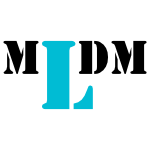 MLDM-2012-SinghCS #approach #hybrid #performance #recognition #using
MLDM-2012-SinghCS #approach #hybrid #performance #recognition #using- A Hybrid Approach to Increase the Performance of Protein Folding Recognition Using Support Vector Machines (LS, GC, DS), pp. 660–668.
 SAT-2012-GaneshOSDRS #named #problem #satisfiability
SAT-2012-GaneshOSDRS #named #problem #satisfiability- Lynx: A Programmatic SAT Solver for the RNA-Folding Problem (VG, CWO, MS, SD, MCR, ASL), pp. 143–156.
 CHI-2011-ChiuLC #documentation #gesture #modelling #multi #symmetry
CHI-2011-ChiuLC #documentation #gesture #modelling #multi #symmetry- Multi-touch document folding: gesture models, fold directions and symmetries (PC, CL, FC), pp. 1591–1600.
 HCD-2011-HumayounDC #agile #design #development #framework #integration
HCD-2011-HumayounDC #agile #design #development #framework #integration- A Three-Fold Integration Framework to Incorporate User-Centered Design into Agile Software Development (SRH, YD, TC), pp. 55–64.
 ICML-2011-PengHMU #set
ICML-2011-PengHMU #set- Convex Max-Product over Compact Sets for Protein Folding (JP, TH, DAM, RU), pp. 729–736.
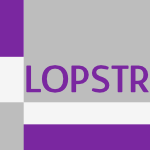 LOPSTR-2011-Seki #logic programming #proving #source code
LOPSTR-2011-Seki #logic programming #proving #source code- Proving Properties of Co-Logic Programs by Unfold/Fold Transformations (HS), pp. 205–220.
 WRLA-2010-EscobarSM #termination
WRLA-2010-EscobarSM #termination- Folding Variant Narrowing and Optimal Variant Termination (SE, RS, JM), pp. 52–68.
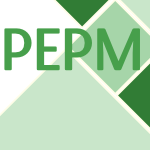 PEPM-2010-AlpuenteBBF #framework
PEPM-2010-AlpuenteBBF #framework- A fold/unfold transformation framework for rewrite theories extended to CCT (MA, DB, MB, MF), pp. 43–52.
 LOPSTR-2010-Seki #induction #on the #proving
LOPSTR-2010-Seki #induction #on the #proving- On Inductive Proofs by Extended Unfold/Fold Transformation Rules (HS), pp. 117–132.
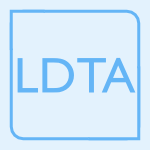 LDTA-2010-JohnstoneS
LDTA-2010-JohnstoneS- Tear-Insert-Fold grammars (AJ, ES), p. 6.
 HPDC-2010-KimHMAJ #distributed #energy #scalability #using
HPDC-2010-KimHMAJ #distributed #energy #scalability #using- Exploring the RNA folding energy landscape using scalable distributed cyberinfrastructure (JK, WH, SM, FAE, SJ), pp. 477–488.
 DAC-2009-HagiescuWBR
DAC-2009-HagiescuWBR- A computing origami: folding streams in FPGAs (AH, WFW, DFB, RMR), pp. 282–287.
 STOC-2009-Guruswami #morphism
STOC-2009-Guruswami #morphism- Artin automorphisms, cyclotomic function fields, and folded list-decodable codes (VG), pp. 23–32.
 MLDM-2009-LoglisciM #mining #multi
MLDM-2009-LoglisciM #mining #multi- Mining Multiple Level Non-redundant Association Rules through Two-Fold Pruning of Redundancies (CL, DM), pp. 251–265.
 LOPSTR-2009-Seki #induction #on the #proving
LOPSTR-2009-Seki #induction #on the #proving- On Inductive and Coinductive Proofs via Unfold/Fold Transformations (HS), pp. 82–96.
 SAC-2009-IdaT #algebra #graph grammar
SAC-2009-IdaT #algebra #graph grammar- Origami fold as algebraic graph rewriting (TI, HT), pp. 1132–1137.
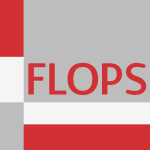 FLOPS-2008-AlvezL #semantics
FLOPS-2008-AlvezL #semantics- A Generalization of the Folding Rule for the Clark-Kunen Semantics (JÁ, PL), pp. 180–194.
 CHI-2008-ElmqvistHRF #interactive #multi #named
CHI-2008-ElmqvistHRF #interactive #multi #named- Melange: space folding for multi-focus interaction (NE, NH, YR, JDF), pp. 1333–1342.
 ICPR-2008-KuksaHP #detection #kernel #performance
ICPR-2008-KuksaHP #detection #kernel #performance- Fast protein homology and fold detection with sparse spatial sample kernels (PPK, PHH, VP), pp. 1–4.
 ICLP-2008-SenniPP #algorithm #constraints #logic programming #source code
ICLP-2008-SenniPP #algorithm #constraints #logic programming #source code- A Folding Algorithm for Eliminating Existential Variables from Constraint Logic Programs (VS, AP, MP), pp. 284–300.
 DHM-2007-LiWW
DHM-2007-LiWW- The Effects of the False Vocal Fold Gaps in a Model of the Larynx on Pressures Distributions and Flows (SL, MW, SW), pp. 147–156.
 ICPR-v3-2006-BouchaffraT #markov #recognition #using
ICPR-v3-2006-BouchaffraT #markov #recognition #using- Protein Fold Recognition using a Structural Hidden Markov Model (DB, JT), pp. 186–189.
 ICML-2005-IeWNL #adaptation #multi #recognition #using
ICML-2005-IeWNL #adaptation #multi #recognition #using- Multi-class protein fold recognition using adaptive codes (EI, JW, WSN, CSL), pp. 329–336.
 ICML-2005-LiuXC #graph #predict #using
ICML-2005-LiuXC #graph #predict #using- Predicting protein folds with structural repeats using a chain graph model (YL, EPX, JGC), pp. 513–520.
 ICALP-2004-FuW #algorithm
ICALP-2004-FuW #algorithm- A 2O(n1-(1/d)log n) Time Algorithm for d-Dimensional Protein Folding in the HP-Model (BF, WW), pp. 630–644.
 PDCL-2004-RoychoudhuryR #automation #concurrent #verification
PDCL-2004-RoychoudhuryR #automation #concurrent #verification- Unfold/Fold Transformations for Automated Verification of Parameterized Concurrent Systems (AR, CRR), pp. 261–290.
 ICLP-2004-PaluDF #simulation
ICLP-2004-PaluDF #simulation- Protein Folding Simulation in CCP (ADP, AD, FF), pp. 452–453.
 ICDAR-2003-ShimanukiKW #process #recognition
ICDAR-2003-ShimanukiKW #process #recognition- Recognition of Folding Process from Origami Drill Books (HS, JK, TW), pp. 550–554.
 LOPSTR-2003-WeberC
LOPSTR-2003-WeberC- Constructively Characterizing Fold and Unfold (TW, JLC), pp. 110–127.
 ICLP-2003-Rosenblueth
ICLP-2003-Rosenblueth- A Distinct-Head Folding Rule (DAR), pp. 505–506.
 DAC-2002-BadarogluTDWMVG #optimisation #reduction #using
DAC-2002-BadarogluTDWMVG #optimisation #reduction #using- Clock tree optimization in synchronous CMOS digital circuits for substrate noise reduction using folding of supply current transients (MB, KT, SD, PW, HDM, IV, GGEG), pp. 399–404.
 AFP-2002-BirdG02
AFP-2002-BirdG02- Arithmetic Coding with Folds and Unfolds (RSB, JG), pp. 1–26.
 WCRE-2001-KullbachR #approach #comprehension #named
WCRE-2001-KullbachR #approach #comprehension #named- Folding: An Approach to Enable Program Understanding of Preprocessed Languages (BK, VR), pp. 3–12.
 MLDM-2001-MottlDSKM #classification #pattern matching #pattern recognition #recognition
MLDM-2001-MottlDSKM #classification #pattern matching #pattern recognition #recognition- Featureless Pattern Recognition in an Imaginary Hilbert Space and Its Application to Protein Fold Classification (VM, SD, OS, CAK, IBM), pp. 322–336.
 PPDP-2001-TurbakW
PPDP-2001-TurbakW- Cycle Therapy: A Prescription for Fold and Unfold on Regular Trees (FAT, JBW), pp. 137–149.
 HPDC-2001-NatrajanFHGWCB #case study #experience #grid #using
HPDC-2001-NatrajanFHGWCB #case study #experience #grid #using- Studying Protein Folding on the Grid: Experiences Using CHARMM on NPACI Resources under Legion (AN, ADF, MAH, ASG, NWD, MC, CLBI), pp. 14–21.
 CL-2000-PettorossiP #model checking
CL-2000-PettorossiP #model checking- Perfect Model Checking via Unfold/Fold Transformations (AP, MP), pp. 613–628.
 ICALP-1999-Clote #markov
ICALP-1999-Clote #markov- Protein Folding, the Levinthal Paradox and Rapidly Mixing Markov Chains (PC), pp. 240–249.
 PPDP-1999-RoychoudhuryKRR #framework #logic programming #source code
PPDP-1999-RoychoudhuryKRR #framework #logic programming #source code- A Parameterized Unfold/Fold Transformation Framework for Definite Logic Programs (AR, KNK, CRR, IVR), pp. 396–413.
 ICLP-1999-RoychoudhuryKR #logic programming #source code
ICLP-1999-RoychoudhuryKR #logic programming #source code- Generalized Unfold/fold Transformation Systems for Normal Logic Programs (AR, KNK, IVR), p. 616.
 SAS-1998-Gouranton #case study #semantics #slicing
SAS-1998-Gouranton #case study #semantics #slicing- Deriving Analysers by Folding/Unfolding of Natural Semantics and a Case Study: Slicing (VG), pp. 115–133.
 STOC-1998-CrescenziGPPY #complexity #on the
STOC-1998-CrescenziGPPY #complexity #on the- On the Complexity of Protein Folding (Extended Abstract) (PC, DG, CHP, AP, MY), pp. 597–603.
 ICFP-1998-Hutton #semantics
ICFP-1998-Hutton #semantics- Fold and Unfold for Program Semantics (GH), pp. 280–288.
 IFL-1998-Scholz #benchmark #case study #metric
IFL-1998-Scholz #benchmark #case study #metric- A Case Study: Effects of WITH-Loop-Folding on the NAS Benchmark MG in SAC (SBS), pp. 216–228.
 ICPR-1998-KatoWNGK #approach #modelling #process
ICPR-1998-KatoWNGK #approach #modelling #process- A model-based approach for recognizing folding process of origami (JK, TW, TN, LG, HK), pp. 1808–1811.
 DAC-1997-KimC #synthesis #using
DAC-1997-KimC #synthesis #using- Power-conscious High Level Synthesis Using Loop Folding (DK, KC), pp. 441–445.
 DAC-1997-KimK #algorithm #design #layout #performance
DAC-1997-KimK #algorithm #design #layout #performance- An Efficient Transistor Folding Algorithm for Row-Based CMOS Layout Design (JK, SMK), pp. 456–459.
 ICDAR-1997-KatoWN #recognition
ICDAR-1997-KatoWN #recognition- Recognition of Essential Folding Operations: A Step for Interpreting Illustrated Books of Origami (JK, TW, TN), pp. 81–85.
 ICFP-1997-KrasnogorLMP #functional #programming
ICFP-1997-KrasnogorLMP #functional #programming- Protien Folding meets Functional Programming (NK, PEML, PM, DAP), p. 313.
 ICFP-1997-KrasnogorLMP97a #modelling #string
ICFP-1997-KrasnogorLMP97a #modelling #string- Modelling String Folding with G2L Grammars (NK, PEML, PM, DAP), p. 314.
 IFL-1997-Scholz #array
IFL-1997-Scholz #array- WITH-Loop-Folding in SAC — Condensing Consecutive Array Operations (SBS), pp. 72–91.
 ALP-1997-AlpuenteFMV
ALP-1997-AlpuenteFMV- Safe Folding/Unfolding with Conditional Narrowing (MA, MF, GM, GV), pp. 1–15.
 ICALP-1996-PatersonP #complexity #on the #string
ICALP-1996-PatersonP #complexity #on the #string- On the Complexity of String Folding (MP, TMP), pp. 658–669.
 LOPSTR-1996-PettorossiPR #deduction
LOPSTR-1996-PettorossiPR #deduction- Enhancing Partial Deduction via Unfold/Fold Rules (AP, MP, SR), pp. 146–168.
 PLILP-1996-FrancescoS #concurrent #process
PLILP-1996-FrancescoS #concurrent #process- Unfold/Fold Transformations of Concurrent Processes (NDF, AS), pp. 167–181.
 JICSLP-1996-LeuschelSW #concept #deduction #integration #towards
JICSLP-1996-LeuschelSW #concept #deduction #integration #towards- A Conceptual Embedding of Folding into Partial Deduction: Towards a Maximal Integration (ML, DDS, DAdW), pp. 319–332.
 STOC-1995-HartI #performance
STOC-1995-HartI #performance- Fast protein folding in the hydrophobic-hydrophilic model within three-eights of optimal (Extended Abstract) (WEH, SI), pp. 157–168.
 AFP-1995-MeijerJ95 #functional #monad #programming
AFP-1995-MeijerJ95 #functional #monad #programming- Merging Monads and Folds for Functional Programming (EM, JJ), pp. 228–266.
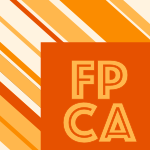 FPCA-1995-MeijerH #exponential
FPCA-1995-MeijerH #exponential- Bananas in Space: Extending Fold and Unfold to Exponential Types (EM, GH), pp. 324–333.
 ICML-1995-CrawH #network #refinement
ICML-1995-CrawH #network #refinement- Protein Folding: Symbolic Refinement Competes with Neural Networks (SC, PH), pp. 133–141.
 ALP-1994-BossiC #termination
ALP-1994-BossiC #termination- Preserving Universal Termination through Unfold/Fold (AB, NC), pp. 269–286.
 LOPSTR-1994-BossiE #semantics #source code
LOPSTR-1994-BossiE #semantics #source code- More on Unfold/Fold Transformations of Normal Programs: Preservation of Fitting’s Semantics (AB, SE), pp. 311–331.
 PLILP-1994-Bsaies #implementation #synthesis
PLILP-1994-Bsaies #implementation #synthesis- Implementing the Synthesis of Properties in Unfold/Fold Transformations (KB), pp. 459–460.
 PLILP-1994-GergatsoulisK #source code
PLILP-1994-GergatsoulisK #source code- Unfold/Fold Transformations For Definite Clause Programs (MG, MK), pp. 340–354.
 SAC-1994-Li #equivalence #graph #on the
SAC-1994-Li #equivalence #graph #on the- On the equivalence of pull-up transistor assignment in PLA folding and distribution graph (WNL), pp. 374–378.
 FPCA-1993-SheardF
FPCA-1993-SheardF- A Fold for All Seasons (TS, LF), pp. 233–242.
 LOPSTR-1993-ProiettiP #proving #source code #synthesis
LOPSTR-1993-ProiettiP #proving #source code #synthesis- Synthesis of Programs from Unfold/Fold Proofs (MP, AP), pp. 141–158.
 PLILP-1992-Alexandre #logic programming #source code
PLILP-1992-Alexandre #logic programming #source code- A technique for Transforming Logic Programs by Fold-Unfold Transformations (FA), pp. 202–216.
 PLILP-1992-Amtoft #termination
PLILP-1992-Amtoft #termination- Unfold/fold Transformations Preserving Termination Properties (TA), pp. 187–201.
 PLILP-1992-BossiCE #on the
PLILP-1992-BossiCE #on the- On Safe Folding (AB, NC, SE), pp. 172–186.
 PLILP-1991-ProiettiP #logic programming #named #order #source code
PLILP-1991-ProiettiP #logic programming #named #order #source code- Unfolding — Definition — Folding, in this Order, for Avaoiding Unnecessary Variables in Logic Programs (MP, AP), pp. 347–358.
 DAC-1990-WeyDC #design
DAC-1990-WeyDC #design- Design of Repairable and Fully Diagnosable Folded PLAs for Yield Enhancement (CLW, JD, TYC), pp. 327–332.
 ESOP-1990-NielsonN #exclamation #for free
ESOP-1990-NielsonN #exclamation #for free- Eureka Definitions for Free! or Disagreement Points for Fold/Unford Transformations (HRN, FN), pp. 291–305.
 ALP-1990-Sato #equivalence #first-order
ALP-1990-Sato #equivalence #first-order- An Equivalence Preserving First Order Unfold/fold Transformation System (TS), pp. 173–188.
 DAC-1989-LinDY #2d #layout #matrix #synthesis
DAC-1989-LinDY #2d #layout #matrix #synthesis- Gate Matrix Layout Synthesis with Two-Dimensional Folding (IL, DHCD, SHCY), pp. 37–42.
 PLDI-1988-Debray #logic programming #optimisation #source code
PLDI-1988-Debray #logic programming #optimisation #source code- Unfold/Fold Transformations and Loop Optimization of Logic Programs (SKD), pp. 297–307.
 DAC-1987-LursinsapG
DAC-1987-LursinsapG- Improving a PLA Area by Pull-Up Transistor Folding (CL, DG), pp. 608–614.
 ICLP-1987-KanamoriH87 #logic programming #source code
ICLP-1987-KanamoriH87 #logic programming #source code- Construction of Logic Programs Based on Generalized Unfold/Fold Rules (TK, KH), pp. 744–768.
 DAC-1985-KuoCH #algorithm #heuristic
DAC-1985-KuoCH #algorithm #heuristic- A heuristic algorithm for PLA block folding (YSK, CC, TCH), pp. 744–747.
 DAC-1984-LewandowskiL #algorithm #bound #branch
DAC-1984-LewandowskiL #algorithm #bound #branch- A branch and bound algorithm for optimal pla folding (JLL, CLL), pp. 426–433.
 ILPC-1984-TamakiS84 #logic programming #source code
ILPC-1984-TamakiS84 #logic programming #source code- Unfold/Fold Transformation of Logic Programs (HT, TS), pp. 127–138.
 DAC-1983-LiuA #bound
DAC-1983-LiuA #bound- Bounds on the saved area ratio due to PLA folding (WL, DEA), pp. 538–544.
 DAC-1983-MicheliS #array #logic #multi #named #programmable
DAC-1983-MicheliS #array #logic #multi #named #programmable- PLEASURE: a computer program for simple/multiple constrained/unconstrained folding of Programmable Logic Arrays (GDM, ALSV), pp. 530–537.
 DAC-1982-EganL
DAC-1982-EganL- Optimal bipartite folding of PLA (JRE, CLL), pp. 141–146.
 DAC-1982-Grass #algorithm #bound
DAC-1982-Grass #algorithm #bound- A depth-first branch-and-bound algorithm for optimal PLA folding (WG), pp. 133–140.
 DAC-1982-HachtelNS #array #logic #programmable
DAC-1982-HachtelNS #array #logic #programmable- Techniques for programmable logic array folding (GDH, ARN, ALSV), pp. 147–155.
 DAC-1981-SuwaK
DAC-1981-SuwaK- A computer-aided-design system for segmented-folded PLA macro-cells (IS, WJK), pp. 398–405.
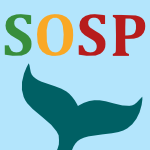 SOSP-1973-Scheffler #memory management
SOSP-1973-Scheffler #memory management- Optimal Folding of a Paging Drum in a Three Level Memory System (LJS), pp. 58–65.
 HCI-DE-2015-ChamunZMOS #approach #design #documentation #what
HCI-DE-2015-ChamunZMOS #approach #design #documentation #what CASE-2014-FeltonTW #self
CASE-2014-FeltonTW #self DAC-2014-JungSWPL #3d #on the #perspective
DAC-2014-JungSWPL #3d #on the #perspective DAC-2014-XueQBYT #analysis #framework #manycore #scalability
DAC-2014-XueQBYT #analysis #framework #manycore #scalability ICFP-2014-GibbonsW #domain-specific language #functional
ICFP-2014-GibbonsW #domain-specific language #functional ISMM-2014-CliffordPST
ISMM-2014-CliffordPST DATE-2013-DimitrakopoulosGNK #multi
DATE-2013-DimitrakopoulosGNK #multi SIGMOD-2013-ChengHWF #graph #named #query #reachability #scalability
SIGMOD-2013-ChengHWF #graph #named #query #reachability #scalability SAC-2013-NardelliTB #behaviour
SAC-2013-NardelliTB #behaviour CC-2013-SiegelS #analysis #named
CC-2013-SiegelS #analysis #named HPDC-2013-Shaw #named #simulation
HPDC-2013-Shaw #named #simulation WRLA-J-2010-EscobarSM12 #termination
WRLA-J-2010-EscobarSM12 #termination SCAM-2012-MurakamiHHIK #clone detection #detection
SCAM-2012-MurakamiHHIK #clone detection #detection STOC-2012-GuruswamiX
STOC-2012-GuruswamiX ICPR-2012-AskKA #equation #performance #polynomial #symmetry
ICPR-2012-AskKA #equation #performance #polynomial #symmetry MLDM-2012-SinghCS #approach #hybrid #performance #recognition #using
MLDM-2012-SinghCS #approach #hybrid #performance #recognition #using SAT-2012-GaneshOSDRS #named #problem #satisfiability
SAT-2012-GaneshOSDRS #named #problem #satisfiability CHI-2011-ChiuLC #documentation #gesture #modelling #multi #symmetry
CHI-2011-ChiuLC #documentation #gesture #modelling #multi #symmetry HCD-2011-HumayounDC #agile #design #development #framework #integration
HCD-2011-HumayounDC #agile #design #development #framework #integration ICML-2011-PengHMU #set
ICML-2011-PengHMU #set LOPSTR-2011-Seki #logic programming #proving #source code
LOPSTR-2011-Seki #logic programming #proving #source code WRLA-2010-EscobarSM #termination
WRLA-2010-EscobarSM #termination PEPM-2010-AlpuenteBBF #framework
PEPM-2010-AlpuenteBBF #framework LOPSTR-2010-Seki #induction #on the #proving
LOPSTR-2010-Seki #induction #on the #proving LDTA-2010-JohnstoneS
LDTA-2010-JohnstoneS HPDC-2010-KimHMAJ #distributed #energy #scalability #using
HPDC-2010-KimHMAJ #distributed #energy #scalability #using DAC-2009-HagiescuWBR
DAC-2009-HagiescuWBR STOC-2009-Guruswami #morphism
STOC-2009-Guruswami #morphism MLDM-2009-LoglisciM #mining #multi
MLDM-2009-LoglisciM #mining #multi LOPSTR-2009-Seki #induction #on the #proving
LOPSTR-2009-Seki #induction #on the #proving SAC-2009-IdaT #algebra #graph grammar
SAC-2009-IdaT #algebra #graph grammar FLOPS-2008-AlvezL #semantics
FLOPS-2008-AlvezL #semantics CHI-2008-ElmqvistHRF #interactive #multi #named
CHI-2008-ElmqvistHRF #interactive #multi #named ICPR-2008-KuksaHP #detection #kernel #performance
ICPR-2008-KuksaHP #detection #kernel #performance ICLP-2008-SenniPP #algorithm #constraints #logic programming #source code
ICLP-2008-SenniPP #algorithm #constraints #logic programming #source code DHM-2007-LiWW
DHM-2007-LiWW ICPR-v3-2006-BouchaffraT #markov #recognition #using
ICPR-v3-2006-BouchaffraT #markov #recognition #using ICML-2005-IeWNL #adaptation #multi #recognition #using
ICML-2005-IeWNL #adaptation #multi #recognition #using ICML-2005-LiuXC #graph #predict #using
ICML-2005-LiuXC #graph #predict #using ICALP-2004-FuW #algorithm
ICALP-2004-FuW #algorithm PDCL-2004-RoychoudhuryR #automation #concurrent #verification
PDCL-2004-RoychoudhuryR #automation #concurrent #verification ICLP-2004-PaluDF #simulation
ICLP-2004-PaluDF #simulation ICDAR-2003-ShimanukiKW #process #recognition
ICDAR-2003-ShimanukiKW #process #recognition LOPSTR-2003-WeberC
LOPSTR-2003-WeberC ICLP-2003-Rosenblueth
ICLP-2003-Rosenblueth DAC-2002-BadarogluTDWMVG #optimisation #reduction #using
DAC-2002-BadarogluTDWMVG #optimisation #reduction #using AFP-2002-BirdG02
AFP-2002-BirdG02 WCRE-2001-KullbachR #approach #comprehension #named
WCRE-2001-KullbachR #approach #comprehension #named MLDM-2001-MottlDSKM #classification #pattern matching #pattern recognition #recognition
MLDM-2001-MottlDSKM #classification #pattern matching #pattern recognition #recognition PPDP-2001-TurbakW
PPDP-2001-TurbakW HPDC-2001-NatrajanFHGWCB #case study #experience #grid #using
HPDC-2001-NatrajanFHGWCB #case study #experience #grid #using CL-2000-PettorossiP #model checking
CL-2000-PettorossiP #model checking ICALP-1999-Clote #markov
ICALP-1999-Clote #markov PPDP-1999-RoychoudhuryKRR #framework #logic programming #source code
PPDP-1999-RoychoudhuryKRR #framework #logic programming #source code ICLP-1999-RoychoudhuryKR #logic programming #source code
ICLP-1999-RoychoudhuryKR #logic programming #source code SAS-1998-Gouranton #case study #semantics #slicing
SAS-1998-Gouranton #case study #semantics #slicing STOC-1998-CrescenziGPPY #complexity #on the
STOC-1998-CrescenziGPPY #complexity #on the ICFP-1998-Hutton #semantics
ICFP-1998-Hutton #semantics IFL-1998-Scholz #benchmark #case study #metric
IFL-1998-Scholz #benchmark #case study #metric ICPR-1998-KatoWNGK #approach #modelling #process
ICPR-1998-KatoWNGK #approach #modelling #process DAC-1997-KimC #synthesis #using
DAC-1997-KimC #synthesis #using DAC-1997-KimK #algorithm #design #layout #performance
DAC-1997-KimK #algorithm #design #layout #performance ICDAR-1997-KatoWN #recognition
ICDAR-1997-KatoWN #recognition ICFP-1997-KrasnogorLMP #functional #programming
ICFP-1997-KrasnogorLMP #functional #programming ICFP-1997-KrasnogorLMP97a #modelling #string
ICFP-1997-KrasnogorLMP97a #modelling #string IFL-1997-Scholz #array
IFL-1997-Scholz #array ALP-1997-AlpuenteFMV
ALP-1997-AlpuenteFMV ICALP-1996-PatersonP #complexity #on the #string
ICALP-1996-PatersonP #complexity #on the #string LOPSTR-1996-PettorossiPR #deduction
LOPSTR-1996-PettorossiPR #deduction PLILP-1996-FrancescoS #concurrent #process
PLILP-1996-FrancescoS #concurrent #process JICSLP-1996-LeuschelSW #concept #deduction #integration #towards
JICSLP-1996-LeuschelSW #concept #deduction #integration #towards STOC-1995-HartI #performance
STOC-1995-HartI #performance AFP-1995-MeijerJ95 #functional #monad #programming
AFP-1995-MeijerJ95 #functional #monad #programming FPCA-1995-MeijerH #exponential
FPCA-1995-MeijerH #exponential ICML-1995-CrawH #network #refinement
ICML-1995-CrawH #network #refinement ALP-1994-BossiC #termination
ALP-1994-BossiC #termination LOPSTR-1994-BossiE #semantics #source code
LOPSTR-1994-BossiE #semantics #source code PLILP-1994-Bsaies #implementation #synthesis
PLILP-1994-Bsaies #implementation #synthesis PLILP-1994-GergatsoulisK #source code
PLILP-1994-GergatsoulisK #source code SAC-1994-Li #equivalence #graph #on the
SAC-1994-Li #equivalence #graph #on the FPCA-1993-SheardF
FPCA-1993-SheardF LOPSTR-1993-ProiettiP #proving #source code #synthesis
LOPSTR-1993-ProiettiP #proving #source code #synthesis PLILP-1992-Alexandre #logic programming #source code
PLILP-1992-Alexandre #logic programming #source code PLILP-1992-Amtoft #termination
PLILP-1992-Amtoft #termination PLILP-1992-BossiCE #on the
PLILP-1992-BossiCE #on the PLILP-1991-ProiettiP #logic programming #named #order #source code
PLILP-1991-ProiettiP #logic programming #named #order #source code DAC-1990-WeyDC #design
DAC-1990-WeyDC #design ESOP-1990-NielsonN #exclamation #for free
ESOP-1990-NielsonN #exclamation #for free ALP-1990-Sato #equivalence #first-order
ALP-1990-Sato #equivalence #first-order DAC-1989-LinDY #2d #layout #matrix #synthesis
DAC-1989-LinDY #2d #layout #matrix #synthesis PLDI-1988-Debray #logic programming #optimisation #source code
PLDI-1988-Debray #logic programming #optimisation #source code DAC-1987-LursinsapG
DAC-1987-LursinsapG ICLP-1987-KanamoriH87 #logic programming #source code
ICLP-1987-KanamoriH87 #logic programming #source code DAC-1985-KuoCH #algorithm #heuristic
DAC-1985-KuoCH #algorithm #heuristic DAC-1984-LewandowskiL #algorithm #bound #branch
DAC-1984-LewandowskiL #algorithm #bound #branch ILPC-1984-TamakiS84 #logic programming #source code
ILPC-1984-TamakiS84 #logic programming #source code DAC-1983-LiuA #bound
DAC-1983-LiuA #bound DAC-1983-MicheliS #array #logic #multi #named #programmable
DAC-1983-MicheliS #array #logic #multi #named #programmable DAC-1982-EganL
DAC-1982-EganL DAC-1982-Grass #algorithm #bound
DAC-1982-Grass #algorithm #bound DAC-1982-HachtelNS #array #logic #programmable
DAC-1982-HachtelNS #array #logic #programmable DAC-1981-SuwaK
DAC-1981-SuwaK SOSP-1973-Scheffler #memory management
SOSP-1973-Scheffler #memory management









